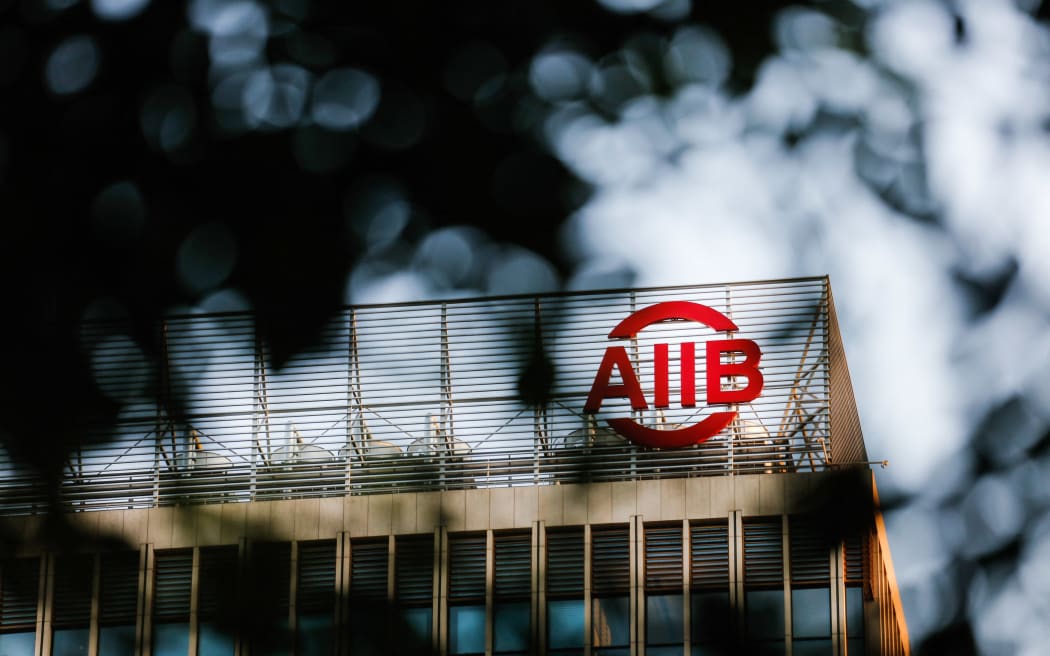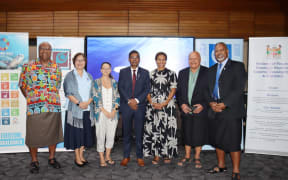
Photo: AFP
The private and public sector will need to work in partnership (PPPs) to meet the estimated $5 trillion of infrastructure required for New Zealand and its four regional partners over the next few years.
The chief financial officer of the Asia Infrastructure Investment Bank (AIIB) said governments could not afford to pay for a wide range of costly development projects required to mitigate and adapt to climate change, as well as other goals for sustainable development.
A recent KPMG report suggested New Zealand would need to invest $6 billion in each of the next seven years just to meet its renewable energy targets in 2030, 2040 and 2050.
In addition, Treasury estimated it would cost New Zealand between $3b and $23b to pay for the carbon offsets required from 2030, even if it did meet the target set out in the Paris Agreement on Climate Change, signed by the former National government in 2016.
AIIB chief financial officer Andrew Cross said New Zealand would play a leading role in investment decisions for other regional partners Australia, Vietnam, Singapore and the Cook Islands over the next few years.
New Zealand is a founding member of the AIIB, which was the second-largest multilateral development bank in the world with 109 member countries.
As a founding member, it will become the lead director of one of 12 constituencies, which includes Australia, Vietnam, Singapore, and the Cook Islands.
"So it's an amazing opportunity for New Zealand to be really clear about what its priorities are, how it wants to influence AIIB, but also how it works on behalf of the other five countries that are a part of its constituency," Cross said.
The director of the regional group was yet to be appointed, with Treasury staffer Hugh Van Dyke acting as the alternate director for Aoteroa over the past year.
Cross said New Zealand, represented by its yet-to-be-appointed director, would have a leading role in forming the spending priorities for its constituency, with half of AIIB's total lending earmarked for the private sector, with the other half reserved for the public sector.
"We're really focused on the private sector too because that's a hugely important part of any economy, creation of jobs, creation of change, mobilisation of capital, so 50 percent of our projects were targeting the private sector 50 percent to the public sector," Cross said.
"So we see from that strategy agreed by the boards in New Zealand was a participant in that discussion, the absolute vital part of having both public and private working together."
Cross said PPPs would be essential to meeting the demand for funding and development of critical infrastructure.
"Both parties are inextricably linked. You cannot act independently. I mean, we have a strategy which is really clear about working with both and working with both bilaterally as well," he said.
"So there are many people aware of the concept of public-private partnerships. It gets different names, different labels across different countries that are specific to the regulatory regimes.
"However, both working in tandem - you're likely to get really, really good results, recognising though that there are also projects that are specific to the private sector and specifically suited to the public sector.
"It's not a one solution fits all. It's really working together to come up with how do we close this $5 trillion infrastructure gap, especially considering that climate change is not just a national interest, it's a global interest."
Separately, Cross said New Zealand was particularly important to him personally.
"I just wanted to acknowledge the influence and impact of New Zealand on me so anything that I've been fortunate to achieve and that has prepared me for this role, sort of goes all the way back to going to school in Whangārei and Raumanga and then going to Whangārei Boys High School and Waikato University. I just, if I could, give a shout out to the unsung heroes who are the teachers and the academics who contributed along the way."






